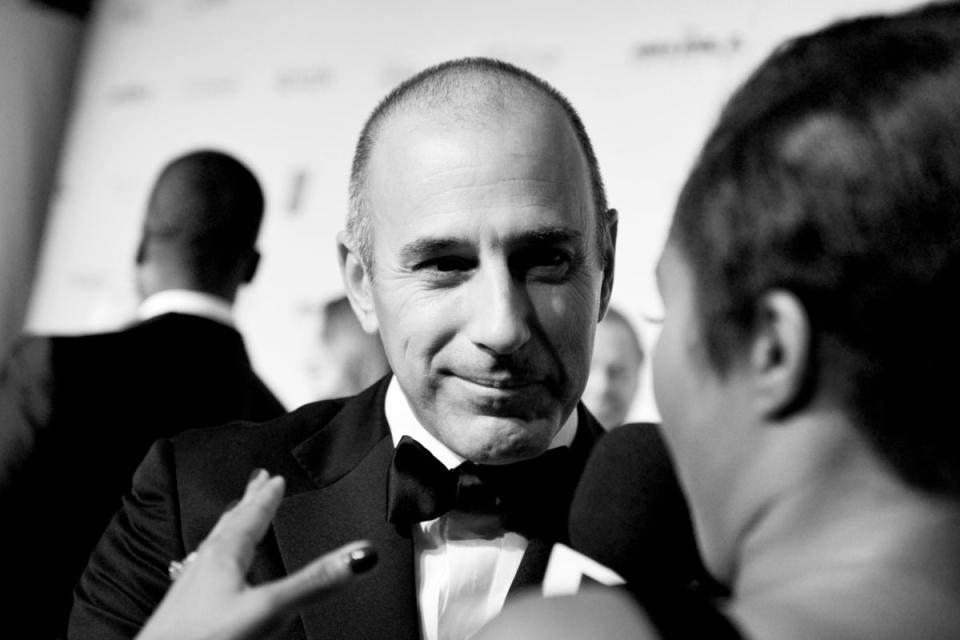The #MeToo movement is a boon for big law firms

CBS Corp.’s CEO, Les Moonves, has become the latest powerful man to be accused of sexually harassing and intimidating women whose careers he’d held sway over.
In response to a New Yorker article outlining those claims on Friday, the CBS (CBS) board said it’s selecting an outside law firm to investigate the allegations — which include the assertion that sexual misconduct bled into other parts of CBS such as “60 Minutes” and CBS News. (Moonves, for his part, issued a statement saying, “I have never misused my position to harm or hinder anyone’s career.”)
In the past, companies were more likely to enlist their human-resources departments to probe allegations of sexual misconduct at the highest level.
“Obviously, that presents certain conflicts,” Minna Kotkin, the director of the Brooklyn Law School Employment Law Clinic, told Yahoo Finance. “If you were the alleged victim of a harassment situation, you may not find the HR department’s investigation particularly neutral … The HR division’s goal … is to protect the company as much as possible.”
‘It’s certainly a great revenue generator for law firms’
Companies’ handling of misconduct claims has evolved in recent years and in the wake of the #MeToo movement, which gathered steam in October after The New York Times exposed sordid allegations against media mogul Harvey Weinstein. More and more, corporate America is looking beyond its own walls to probe allegations of misconduct — specifically, it’s enlisting corporate law firms with robust employment practices.
Of course, hiring a law firm can be expensive. Lawyers bill an average of $475 an hour, according to a recent report on the legal industry that averaged the rates of attorneys ranging from lower-level associates to partners with equity in firms.
“It’s certainly a great revenue generator for law firms,” Kotkin said. “But it’s a big expense for companies.”

The companies that have incurred this expense include SoFi, whose board reportedly hired the law firm Sullivan & Cromwell last year to investigate allegations of pervasive sexual harassment. Sullivan & Cromwell found evidence that then-CEO Mike Cagney used company resources to pursue a romantic relationship with an employee, several people familiar with the matter told The New York Times. He was ousted last September.
Also last year, 21st Century Fox enlisted the law firm Paul, Weiss, Rifkind, Wharton & Garrison to look into allegations against conservative TV host Bill O’Reilly before his ouster. And NPR, yet another news outlet whose higher-ups were accused of sexual harassment, retained Morgan Lewis to look into allegations against Michael Oreskes, the former Senior Vice President of News.
It’s unlikely these companies will be the last to bring on white-shoe law firms to investigate such matters. Jackie Ford, a partner at the law firm Vorys who specializes in employment law, called outside investigations of sexual harassment claims “definitely a growing area of interest and a growing practice for law firms.”
‘I want NBC to stop fighting #MeToo within its own walls’
One notable exception to the trend of hiring outside counsel is NBC, which enlisted its own legal team to investigate its response to allegations of harassment by Matt Lauer. While the network said it consulted with two outside law firms to review its findings, NBC faced criticism for using its in-house lawyers to probe claims of harassment.
“I want NBC to stop fighting #MeToo within its own walls. I ask NBC Universal to retain an outside investigator to look into sexual harassment and any coverup of sexual harassment at NBC News,” Linda Vester, a former NBC and Fox News journalist who accused NBC anchor Tom Brokaw of harassment, wrote in The Washington Post.

Companies may be able to avoid just this kind of criticism if they hire outside lawyers to investigate the most serious claims of misconduct. To be sure, outside law firms get paid by the very companies they’re investigating — but they’re more likely to be impartial than in-house HR departments or in-house lawyers, according to employment-law experts.
“If you’re really trying to get to the bottom of what went wrong, you want to hire people who have no axe to grind, no bias at all in the outcome, to take a good look at this and report back to the board,” Melanie Leslie, dean of the Cardozo Law School, told Yahoo Finance.
Camille Hébert, a professor at the Moritz College of Law at Ohio State, called the move towards having investigations done by outside counsel a step “in the right direction.”
“Even if an internal investigation actually is independent, the people who are telling their stories or who are giving information might not feel like it is,” said Hébert, whose specialties include employment law and sexual harassment.
By bringing on independent lawyers to investigate, companies give accusers in sexual misconduct more faith in the process. These companies can also use internal investigations to protect themselves in the courtroom.
Under the law, employers that take “effective remedial action” — for example, hiring a law firm to investigate allegations of harassment — can insulate themselves from liability, Hébert said. And, as Ford, the Vorys lawyer, noted, this case law “provides a huge incentive for employers to basically do the right thing.”
For big law firms, the legal benefits of bringing in outside counsel also means corporate lawyers will continue getting work probing these claims — especially in a post-#MeToo era, when, it seems, we’ll continue to see allegations so serious that they warrant an independent investigation.
Erin Fuchs is deputy managing editor at Yahoo Finance.
Read more:
Supreme Court likely to have a strong business vote for decades
Why tech giants will love the Supreme Court’s ruling for digital privacy
